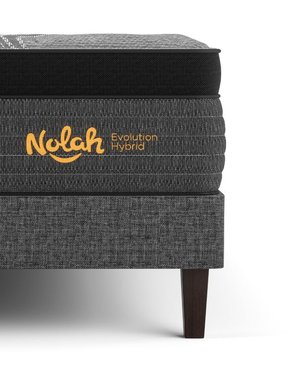Mouth, Throat, and Tongue Exercises for Snoring
Physical exercise is a great way to ease many health issues but did you know you can exercise your mouth? Myofunctional therapy can help those suffering from swallowing issues or snoring. Tongue exercises can also help those with speech impediments learn to speak more clearly. If you’re battling obstructive sleep apnea and snoring, myofunctional therapy could be a holistic approach to easing symptoms.
What Is Myofunctional Therapy?
Myofunctional therapy is an exercise regimen for the mouth to help regain proficient speaking ability, ease breathing difficulty, reduce snoring, and ease a sleep disorder such as obstructive sleep apnea. Orofacial Myofunctional Disorders (OMDs) impact muscle function in the mouth and face and as a result, breathing, speaking, and eating ability are hindered. Myofunctional therapy trains the soft tissue of the mouth, face, and neck to gain its highest functionality. In certain circumstances, myofunctional therapy may be coupled with frenuloplasty or mandibular advancement orofacial surgeries.
How Can Mouth Exercises Help Sleep Apnea and Snoring?
Your oral cavity is made up of salivary glands, taste buds, throat, lips cheeks, and tongue muscles. Mouth exercises can help tone up the muscles surrounding your airway to ease snoring and help you breathe more easily. They will also train your tongue to sit correctly and not obstruct your breathing from poor tongue posture.
How Do Mouth Exercises Work?
The oropharynx area is in the back of your mouth and relates to the sides of the throat, back of the tongue, tonsils, soft palate (roof of the mouth), and adenoids. Mouth exercises strengthen the floppy tissue that vibrates during sleep, causing loud snoring or obstructive sleep apnea.
Mouth exercises strengthen the floppy tissue that vibrates during sleep, causing loud snoring or obstructive sleep apnea.
How Long Should I Do Mouth Exercises for Sleep Apnea and Snoring?
It typically takes 10-15 minutes of mouth exercise every day for a period of three months to start noticing the benefits. When starting a gym routine to help get in shape, results take time and perseverance. Mouth exercise can be performed almost anywhere at any time, which makes it easy to fit it any schedule.
Tongue Exercises for Snoring
To combat snoring, your doctor or myofunctional therapist may introduce you to the following tongue exercises:
Tongue Slide: Position the tip of your tongue against the back of your top front teeth, slowly slide along the roof of the mouth towards the back of your mouth, forwards, and backward for 5 minutes to strengthen throat and tongue muscles
Tongue Push Down: Position the tip of your tongue against the back of your lower front teeth, lower your tongue flat against the floor of your mouth and hold for 10 seconds, release and repeat for up to 5 minutes to improve soft palates, tongue strength, and tone
Tongue Stretch: Tilt your head back and stick out your tongue out as far as you can, try to touch your chin with your tongue for 5 minutes to increase tongue strength
Tongue Push Up: Press your tongue against the roof of the mouth and hold for 10 seconds, release and repeat for up to 5 minutes to improve soft palates and tongue strength
Vowel Sounds and Singing Exercises for Snoring
Vowel Repetition: Say each vowel (a,e,i,o,u) in your normal tone of voice, adjust your tone and speed of speech, repeating these sounds can help tone your mouth muscles
Singing Exercise: Singing exercises many different mouth muscles to ease snoring and sleep apnea, playing a mouth instrument such as a didgeridoo has proven beneficial in those with obstructive sleep apnea
Breathing Exercises for Snoring
- Sit comfortably in a chair
- Relax your body and with your mouth closed and jaw relaxed, inhale through your nose
- Close one nasal cavity with your finger and slowly exhale through your open nostril
- Repeat 10 times alternating nostrils
- If possible, use nasal irrigation to clear any blockages before exercising
Alternatives to Myofunctional Therapy
Lifestyle Changes
To help reduce snoring or relieve sleep apnea symptoms, your doctor may also suggest:
Weight Loss: Carrying a few extra pounds can exacerbate snoring as the extra weight in the neck and throat hinder the airways
Avoid Smoking and Alcohol: Smoking causes congestion and inflammation in the throat, alcohol can put you into a deeper sleep which makes it more difficult to stop snoring
Exercise: Physical exercise is a great anti snoring strategy along with mouth exercises, physical activity can aid weight loss and improve physical strength and mental wellbeing
Update Your Sleep Setup: Elevating your head while you sleep may minimize obstruction, relieving sleep apnea symptoms. You can achieve this with a tall pillow, wedge pillow, or adjustable base.
Conclusion
Throat exercises can reduce snoring, and ease your sleep disorder. Poor sleep quality can exacerbate sleep disorders and cause many health problems and anxiety. With mouth exercises, physical exercise, and other lifestyle changes, you can reduce snoring and sleep apnea symptoms to get a better night’s sleep.
Disclaimer: Nolah does not provide medical advice. All resources on the Nolah blog, including this article, are informational only and do not replace professional medical counsel. Talk to your doctor about any health, mental health, or sleep-related issues.
You May Also Like These Articles
Don't Sleep on Exclusive Offers
Sign up for our newsletter, and you'll be the first to know about discounts, deals, and what's new at Nolah.
Ready for Bed?
